- Home
- J. T. Edson
Cold Deck, Hot Lead
Cold Deck, Hot Lead Read online
J.T. Edson
Cold Deck,
Hot Lead
For Chris and David Herod
plus “all friends”
at 17 Sapcote Drive
Contents
Chapter 1
THE MOMENT HE PICKED UP THE DECK OF CARDS after…
Chapter 2
“I’M SORRY, GENTS,” DERRINGER APOLOGIZED, placing the depleted deck on…
Chapter 3
AFTER LOOKING BACK TO MAKE SURE THAT NONE of Nabbes’…
Chapter 4
REALIZING THAT HE WOULD GAIN NOTHING BY IGNORING the girl’s…
Chapter 5
TRAVELLING IN CALAMITY JANE’S COMPANY PROVED a novel, entertaining experience…
Chapter 6
SMOKE DRIBBLED FROM THE BARREL OF CALAMITY’S Colt as she…
Chapter 7
DAWN’S GRAY LIGHT CREPT INTO THE EASTERN SKIES as Derringer…
Chapter 8
AFTER MAKING HIS REMARKABLE STATEMENT ABOUT the jewellery, Banyan sank…
Chapter 9
CALAMITY JANE MIGHT BE A TOUCH HOT-HEADED, a mite tactless…
Chapter 10
“DERRY AND ME AREN’T IN FAVOR OF THIS NOTION,” Calamity…
Chapter 11
DESPITE SHARP’S GLOOMY COMMENT, DERRINGER did not believe the newcomers…
Chapter 12
FRANK DERRINGER FELT PUZZLED AS HE FINISHED dressing in Sultan…
Chapter 13
WHILE NOT A GIRL GIVEN TO WORRYING ABOUT THE future…
Chapter 14
SITTING ON THE BED IN HER ROOM AT THE HOTEL,…
Chapter 15
SHOCK NUMBED CALAMITY AS THE IMPLICATIONS of the words sank…
Chapter 16
JUST TEN SECONDS TOO LATE FRANK DERRINGER realized he had…
Chapter 17
WHILE THE DOCTOR ATTENDED TO RACHEL’S BLEEDING side and diagnosed…
About the Author
Other Books by J. T. Edson
Copyright
About the Publisher
Chapter 1
THE MOMENT HE PICKED UP THE DECK OF CARDS after changing a hundred-dollar bill for Eli Nabbes, Frank Derringer knew for certain that he was sitting in a crooked game designed to take all his precious winnings and every cent in his pockets.
Fair enough. He had come to Tribune, Kansas, looking for just such a game. Ten days back a young friend had visited the town, become involved in the game, lost all his money and received a bad beating when he complained. When Derringer heard of the incident, he reimbursed his friend’s losses and travelled to Tribune with the intention of regaining the money from the gang involved.
Locating the gang took little doing, if a man knew what to look for. While a growing and busy town on the inter-continental railroad, Tribune hardly offered sufficient pickings for two such outfits. Derringer’s friend could only give a vague description of the bunch who had fleeced him, due to drink and the beating, but the five players in the game fitted it. So, unfortunately, might any other quintet of casually gathered card players.
Certainly up to that time Derringer had seen nothing to which he could object and set as proof of the others’ dishonest intentions. Up to taking the cards only his instincts had led him to assume he might be right.
Knowing the gang would steer clear of him if he appeared in his normal dress as a successful professional gambler, he had made alterations to his clothing. Tall, slimly built, good-looking, his chosen profession prevented his skin from gaining the tan shown by the majority of Western men. So he looked at home in his well-tailored Eastern suit of sober brown, with a gold watch-chain stretching across his vest as an outward and visible sign of wealth. Naturally, wearing that kind of clothing precluded his carrying his normal armament; few dudes owned Western-made gunbelts with an Army Colt in a fast-draw holster. He did not even consider picking up one of the cheap gun-rigs foisted upon dudes by store-keepers in railroad towns, for such would be fatal if the situation arose where he needed his Colt in a hurry. Instead, he placed his reliance on a stoutly constructed twenty-seven-inch-long walking-cane with a claw-and-ball handle, developing a pronounced limp in his left leg to show cause for toting it.
Dressed and equipped suitably, Derringer set off to find the gang. That called for no greater feat of detection than standing in the bar of Tribune’s best saloon and complaining in a loud tone at the lack of opportunity for gambling offered by the town. By what seemed like an accident, a well-padded, jovial-faced man spilled Derringer’s drink. Insisting on making good for his clumsiness, the man started up a conversation. Exchanging introductions, Derringer learned the other was Lou Ferrely, a store-keeper, and declared himself to be Julius M. Main, salesman and part-owner of a cutler’s business.
After which the conversation followed almost traditional lines. Not only did Ferrely know of a card game, straight stud poker for high stakes, but also was on his way to join it. Of course, he did not know how the other players might act if he took along a perfect stranger——At which point Derringer angrily demanded to know if the other doubted his honesty. Ferrely hastened to assure him that such a thought never arose and, in proof of good faith, agreed to take him along.
Shortly after leaving the saloon, Derringer witnessed something that made him more sure that Ferrely acted as “steerer” for the gang; picking up victims and taking them to where his companions waited to get to work. Ferrely told Derringer something of the other players in the game. All, it seemed, were reputable citizens but not the kind to mildly accept being put upon. The Keebles brothers, Fenn and Bud, ran a successful ranch, fighting off marauding Indians and outlaws with sufficient regularity to give them considerable proficiency in the use of firearms, but small regard for the sanctity of human life. Operating a better-class hog-ranch, brothel, did not debar Joe Throck from admission to the game—his money spent as well as the next man’s when he lost it. However, he had been a top-grade pugilist before taking up his present employment and still kept himself in fighting trim, as anybody who crossed him rapidly discovered. Although Eli Nabbes failed to come up to the other three’s standard of toughness, he was brother-in-law to both the town marshal and justice of the peace.
Which, as Derringer knew, served as warning to the victim, should he feel like complaining at a later date, that any kind of objections could be adequately handled. He also recalled that such warnings formed a part of every card gang’s armory.
Further evidence came soon after the recital of the gang’s prowess ended. A burly deputy marshal halted them and demanded to speak privately to Ferrely. At first Derringer felt concerned, for he recognized the peace officer and wondered if it be mutual. However, he noticed a surreptitious passing of money from Ferrely to the deputy and concluded that it was no more than a pay-off to prevent any warning being given of the game’s true nature. The deputy gave Derringer a long look in passing, yet showed no hint of recognition. Nor did Ferrely act as if a warning had been passed, but led Derringer to a small, unassuming saloon in the poorer section of town.
The game was held in the saloon’s back room, behind a closed door that prevented the owner or customers seeing what went on. Around the table in the center of the small room sat the rest of the gang—or a bunch of honest citizens gathered for a regular poker game in a place which offered them privacy.
There had only been two vacant seats and Derringer found himself placed with Ferrely to his left, while Eli Nabbes sat at his right. Wearing a black suit, white shirt and neatly knotted tie, Nabbes presented a bird-like appearance. Not an eagle or hawk, but a diminutive red-eyed vireo, or something equally shy and harmless. Beyond Nabbes lounged Joe Throck, big, heavily built, but with thickened ears and a broken nose testifying to
his pugilistic prowess. Next to Throck, the middle-sized, unshaven Fenn Keebles wore range clothes, although his hands looked a mite soft and clean for a working rancher. Fenn’s place at the far side of the table prevented Derringer from seeing how he was armed. Bud Keebles also wore range clothes of a more dandyish cut, and prominently displayed a white-handled Army Colt in a fast-draw holster on his right thigh.
Everything had been very well done. When Derringer refused to take any more drinks before playing, the others did not press him. Although he watched, and possessed sufficient knowledge to detect most cheating moves, Derringer saw nothing to arouse his suspicions. Nabbes and Fenn played well, showing considerable skill and an appreciation for the finer points of the game. Less skilled, Ferrely displayed noticeable cautious tendencies and only continued when holding good cards. If Ferrely played a tight game, Bud Keebles was loose to the point of foolishness. Time after time the young man stayed in with poor, even hopeless cards, clinging on in the vain hope that a last-minute miracle might save him. Throck’s game came somewhere between that of Bud and Ferrely. In fact, they seemed like any other regular gathering of friends playing out their weekly game.
So far Derringer had emerged the winner; although he suspected that at least two pots had been let go to him despite another player holding a superior hand. Everything remained square and above board—until he completed shuffling the deck and placed it for Nabbes to cut. A request for change from the small man, followed by a question from Ferrely, distracted Derringer for a moment.
Nothing seemed changed when Derringer returned his attention to Nabbes and broke down the hundred-dollar bill. Then Nabbes completed the cut and Derringer picked up the cards ready to deal. Instantly he knew the moment had come. A flicker of smug satisfaction crossed Throck’s surly features and a mocking, knowing grin played on Bud’s lips. Small signs that might have gone unnoticed but for one thing. The deck Derringer held felt different from when he last handled it.
During half an hour’s fast action play, the friction raised by shuffling, dealing and handling had made the cards grow warm to the touch. Yet the deck Derringer held felt cooler than when he had manipulated it during the shuffle.
Although he gave no sign of it, Derringer knew what had caused the remarkable change in temperature. While Ferrely had diverted Derringer’s attention, Nabbes had exchanged the cards used up to that time for an identical deck specially prepared to encourage heavy betting on the victim’s part. Then, despite everything seeming to be in Derringer’s favor, he would lose the hand on the call.
Already Derringer’s winnings covered the amount the gang had taken from his friend, with enough over to make the trip worthwhile. However, he stood to lose it all, and more, on the hand he was about to deal. Nor could he see any way out at that moment. To fold would arouse the gang’s suspicions, as they were sure to create the impression from the start that he held the best hand. It had been his intention to leave the room, under the pretense of going to the back-house, before the cold deck came in, but had left the move too late. So he could only go along and look for a way out.
Calmly, without any hint that he knew of the substitution, Derringer dealt each man his hole card face down. Already an idea had begun to form; not the kind one would select given dealer’s choice in the game, but better than nothing under the circumstances. Thinking over the idea, Derringer flipped the players the first of their up-cards.
On completion of the round, Derringer found he had the jack of hearts showing and jack of spades in the hole. Then he studied what his opponents held. Ferrely showed the queen of spades; Bud Keebles, the four of spades; Fenn, the eight of spades; Throck, the nine of hearts and Nabbes the five of hearts. Unless Ferrely had a second queen in the hole, Derringer’s pair of jacks made the best cards on the table.
“Queen to bet,” Derringer stated.
With none of his earlier hesitation, Ferrely opened the pot for ten dollars. Bud promptly raised it to thirty, despite the apparent weakness of his hand. However, he had done the same thing before, so the move might have passed unnoticed if Derringer did not already suspect skull-duggery. When Fenn stayed, Derringer knew for sure the deal was rigged. A man of the “rancher’s” ability did not stay in as third man even if he held a second eight in the hole. Staying on the nine might have proved nothing the way Throck played, but he also raised and Nabbes remained in the game.
With the betting completed, Derringer flicked out the second of the up-cards. Ferrely caught the ace of spades, giving him the makings of a good hand. It seemed that Bud was following his normal loose style of play by sticking in with no more than the six of spades falling his way. Nor did Fenn seem to strengthen his hand by receiving the king of clubs. An eight of clubs to Throck, followed by the ten of hearts to Nabbes and then Derringer dropped the jack of clubs to himself.
“I always say if you’ve got ’em, you might’s well use ’em,” Derringer commented with a winner’s grin. “She’s loose for fifty simoleons, gents.”
“I ain’t scared,” Ferrely declared, but did no more than cover the bet.
However, Bud once more raised and the betting round saw the pot swell in a manner likely to cause an unsuspecting lucky player to be reckless. None of the other players dropped out and with the wagering completed Derringer dealt again.
“King of spades for a royal straight, Lou,” Derringer announced as he dealt. “Three of spades for you, Bud. Ace of hearts for Fenn. Seven of spades to help Joe’s straight, another five for Eli and the little nine of clubs for me. Looks like you boys aren’t trying to beat me. Anyways, I’ll open for fifty again.”
“Your fifty and the same again, seeing’s how a royal flush licks two jacks,” grinned Ferrely.
Raise and re-raise followed, during which Derringer studied the other hands to estimate where the danger lay. By the time he had completed the fourth and final round of up-cards, he knew that only one hand could possibly beat him.
Although his last card had given Ferrely the ace, king, queen and ten of spades showing, he could not hold a royal straight flush when the required jack of the suit lay in Derringer’s hole. So, even if he caught the jack of diamonds for a straight, or a spade to give an ordinary flush, the nine of spades which fell to Derringer made a full house that beat either.
Fenn Keebles received the ace of diamonds as his last card and at best held only three of a kind. A ten of hearts left Throck with a four cards straight open at each hand; fair strength, but woefully inadequate in the face of a full house.
Like Derringer, Nabbes finished showing two pairs; but his highest were only tens and matching one of them did not beat three jacks backed by two nines.
That left Bud, and Derringer knew the danger must come from him. Such a hand would never be dealt with the mere intention of increasing the victim’s eagerness. Bud’s exposed hand consisted of the three, four, five, six of spades. Given the deuce of that suit in the hole—which Derringer felt sure it was—that made a straight flush and licked the pants off any full house.
Give them their due, Derringer mused, the gang knew how to rig a deck of cards and the best ways to wring every advantage from doing so.
At no time had there been a hand exposed on the table with sufficient power to drive out a cautious player. Receiving the jack of spades in the hole prevented the victim from fearing Ferrely might hold a royal flush. An unsuspecting player would probably be gloating over the fact that he could allow Ferrely to make a bluff of holding the top hand. Throughout the game Bud had exhibited a reckless disregard for the rules of sensible betting; so his sticking in on such apparently unpromising cards should arouse no suspicion. As the odds against being dealt a straight flush in the first five cards stood at 72,193.33 to one, a player might be excused in overlooking the possibility of Bud catching such a prime hand. More so when twelve cards of the spade suit could be accounted for and the seven, being exposed in Throck’s hand, left the possible straight open at one end only.
After the d
iscovery that Bud did indeed hold the straight flush, Derringer would have small chance of making a complaint stick. It could be pointed out that he had shuffled and dealt the hand, although there would be no mention of the fact that the deck he used was not the one played with up to that point in the game.
Having kept a careful watch, Derringer knew that Bud had failed to take more than a quick peek at the corner of the hole card. So the plan the gambler had thought out stood a chance of succeeding. However, he needed a diversion of his own if he hoped to be able to put it into operation.
“Come on, Julius,” Ferrely said, before Derringer found time to place the remainder of the deck in the center of the table. “It’s you to open.”
Clearly Bud was just as eager to commence the slaughter, for he added his voice to Ferrely’s in a request for immediate action. Derringer saw an annoyed frown come to Nabbes’ face and the little man threw a warning glare at the youngster. It seemed that Fenn and Throck also felt Bud was making things a mite too obvious, for they directed scowls in his direction. Seeing his chance, Derringer took it.
On being invited to sit in at the game, Derringer had rested the walking-cane on the back of his chair. Considering the time to be right, he nudged the cane in what appeared to be an accidental manner. Falling, the claw-and-ball handle struck the floor hard enough to make the cane show in no uncertain fashion that it possessed another purpose than supporting a leg “injured in the second battle of Ball Run.” The crack of a shot sounded, flame spurted from the ferrule, the cane bounced in uncontrolled recoil and a bullet drove into the rear wall of the room.
At which point Derringer received all the diversion he could hope for. Trying to throw back his chair, rise and draw his gun all at once, Bud Keebles tripped. He collided with his brother as Fenn also tried to rise with right hand fanning across to the Colt bolstered at his left side. Springing up, Throck twisted around to see where the bullet had struck. Although Ferrely left his chair with a bound, dropping his gaze to the smoking ferrule of the cane, Nabbes did not move. Instead the small man whisked a Remington Double Derringer from under his jacket, but could not prevent his eyes turning down to study the cause of the confusion.

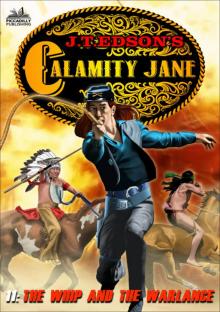 Calamity Jane 11
Calamity Jane 11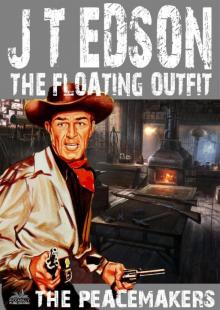 The Floating Outift 33
The Floating Outift 33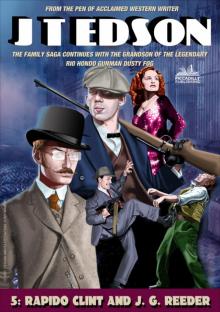 Cap Fog 5
Cap Fog 5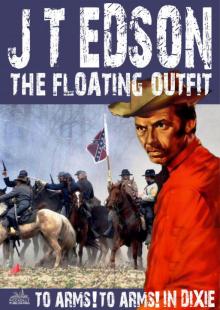 The Floating Outfit 34
The Floating Outfit 34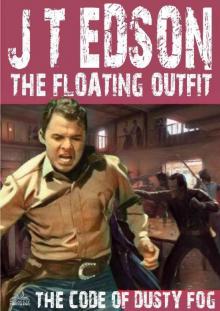 The Code of Dusty Fog
The Code of Dusty Fog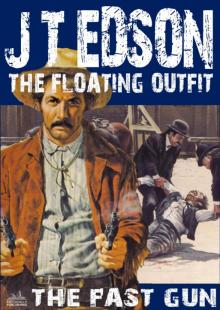 The Floating Outfit 21
The Floating Outfit 21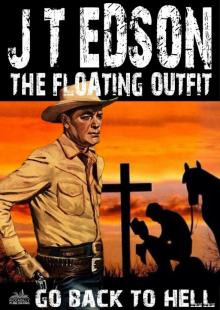 The Floating Outift 36
The Floating Outift 36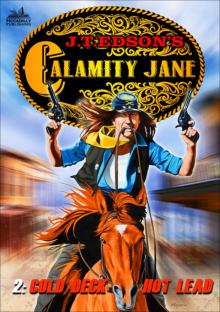 Calamity Jane 2
Calamity Jane 2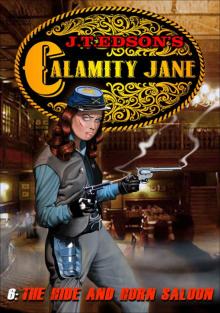 Calamity Jane 6: The Hide and Horn Saloon (A Calamity Jane Western)
Calamity Jane 6: The Hide and Horn Saloon (A Calamity Jane Western)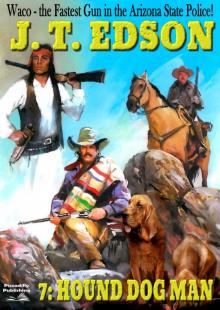 Waco 7
Waco 7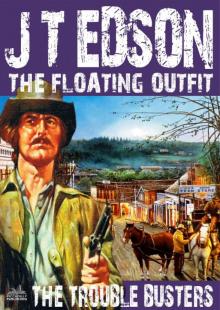 The Floating Outfit 25
The Floating Outfit 25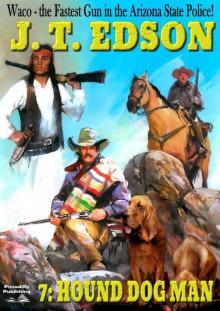 Waco 7: Hound Dog Man (A Waco Western)
Waco 7: Hound Dog Man (A Waco Western)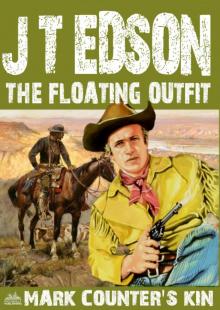 The Floating Outfit 47
The Floating Outfit 47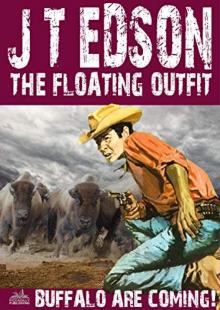 The Floating Outfit 42: Buffalo Are Coming!
The Floating Outfit 42: Buffalo Are Coming!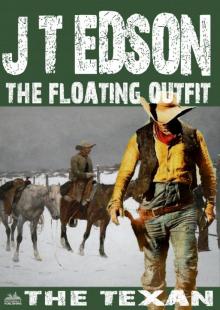 The Floating Outfit 46
The Floating Outfit 46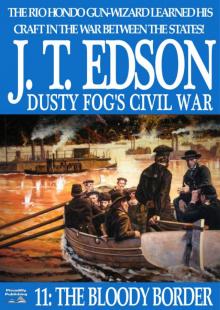 Dusty Fog's Civil War 11
Dusty Fog's Civil War 11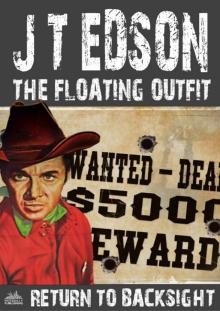 The Floating Outfit 61
The Floating Outfit 61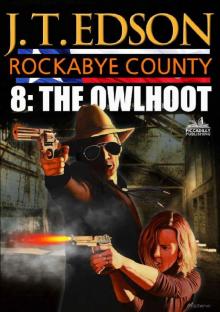 The Owlhoot
The Owlhoot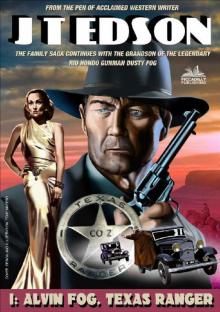 Alvin Fog, Texas Ranger
Alvin Fog, Texas Ranger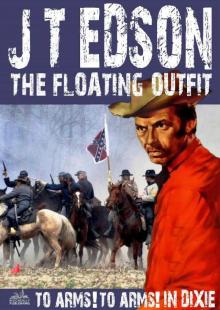 The Floating Outfit 34: To Arms! To Arms! In Dixie! (A Floating Outfit Western)
The Floating Outfit 34: To Arms! To Arms! In Dixie! (A Floating Outfit Western)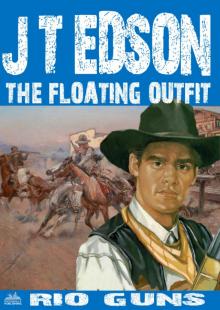 The Floating Outfit 44
The Floating Outfit 44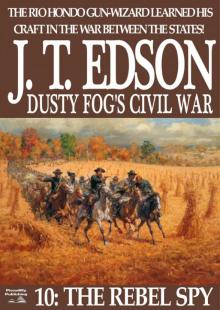 Dusty Fog's Civil War 10
Dusty Fog's Civil War 10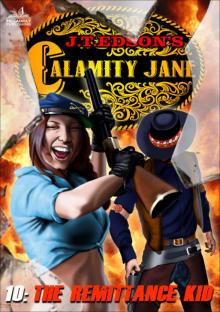 Calamity Jane 10
Calamity Jane 10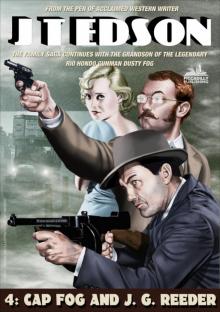 Cap Fog 4
Cap Fog 4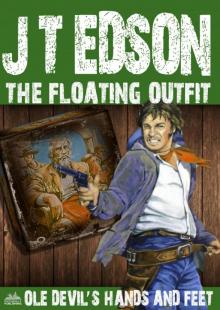 The Floating Outfit 51
The Floating Outfit 51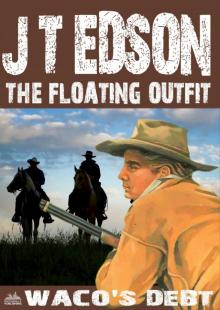 The Floating Outfit 50
The Floating Outfit 50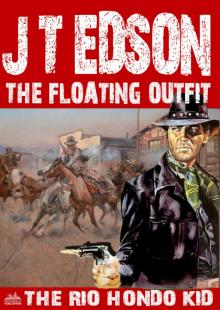 The Floating Outfit 49
The Floating Outfit 49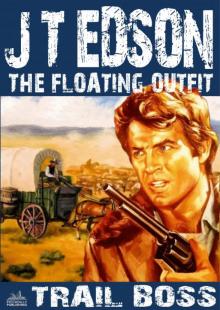 The Floating Outfit 10
The Floating Outfit 10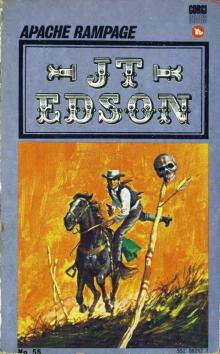 Apache Rampage
Apache Rampage The Floating Outfit 15
The Floating Outfit 15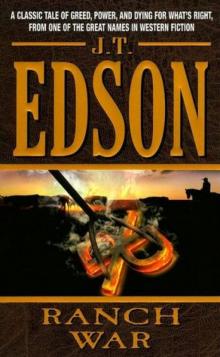 Ranch War
Ranch War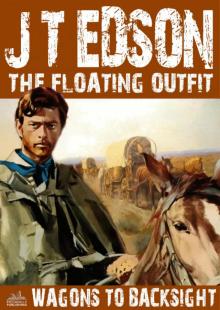 The Floating Outfit 11
The Floating Outfit 11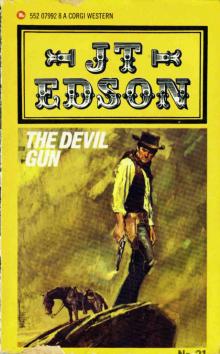 The Devil Gun
The Devil Gun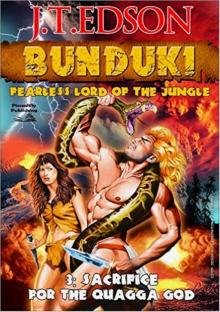 Sacrifice for the Quagga God (A Bunduki Jungle Adventure Book 3)
Sacrifice for the Quagga God (A Bunduki Jungle Adventure Book 3)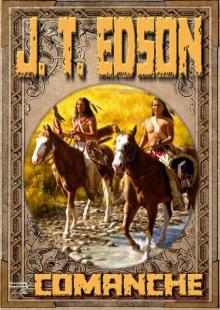 Comanche (A J.T. Edson Western Book 1)
Comanche (A J.T. Edson Western Book 1)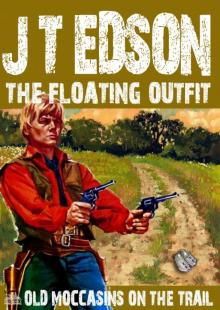 The Floating Outfit 48
The Floating Outfit 48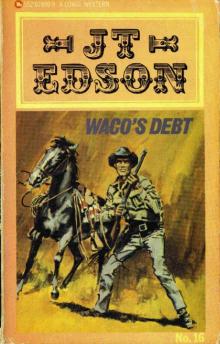 Wacos Debt
Wacos Debt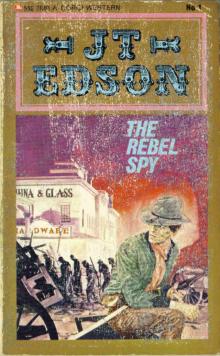 The Rebel Spy
The Rebel Spy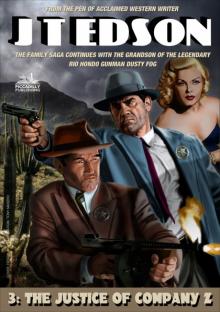 Cap Fog 3
Cap Fog 3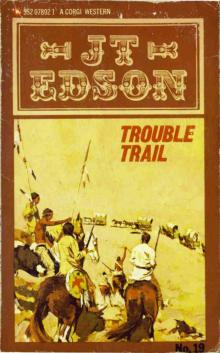 Trouble Trail
Trouble Trail Cold Deck, Hot Lead
Cold Deck, Hot Lead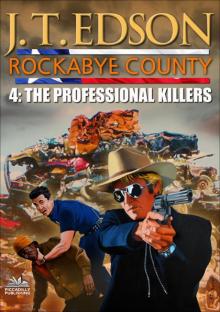 Rockabye County 4
Rockabye County 4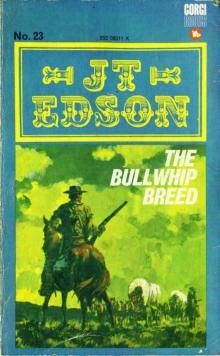 The Bullwhip Breed
The Bullwhip Breed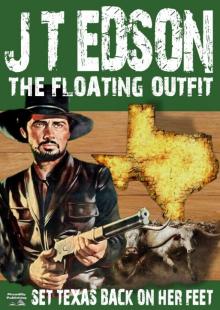 Set Texas Back On Her Feet (A Floating Outfit Western Book 6)
Set Texas Back On Her Feet (A Floating Outfit Western Book 6)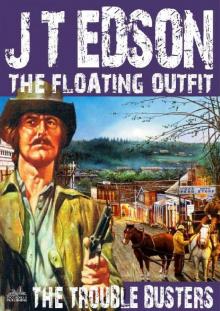 The Floating Outfit 25: The Trouble Busters (A Floating Outfit Western)
The Floating Outfit 25: The Trouble Busters (A Floating Outfit Western) Fearless Master of the Jungle (A Bunduki Jungle Adventure
Fearless Master of the Jungle (A Bunduki Jungle Adventure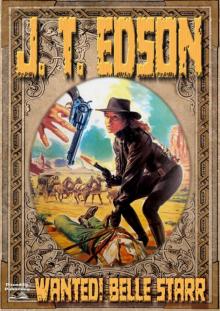 Wanted! Belle Starr!
Wanted! Belle Starr!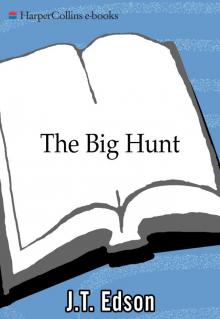 The Big Hunt
The Big Hunt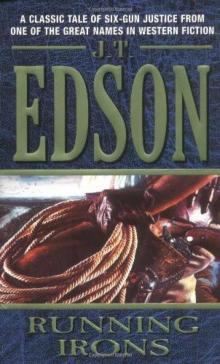 Running Irons
Running Irons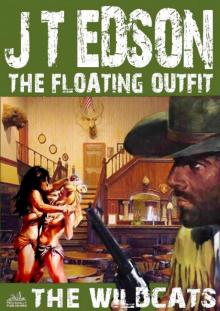 The Floating Outfit 19
The Floating Outfit 19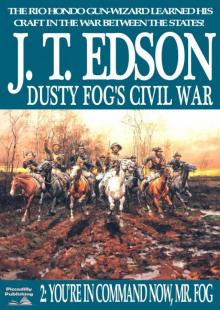 You're in Command Now, Mr Fog
You're in Command Now, Mr Fog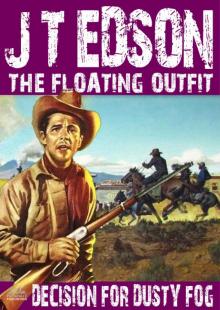 The Floating Outfit 27
The Floating Outfit 27 Texas Killers
Texas Killers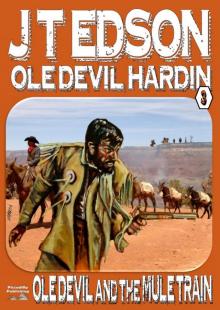 Ole Devil and the Mule Train (An Ole Devil Western Book 3)
Ole Devil and the Mule Train (An Ole Devil Western Book 3)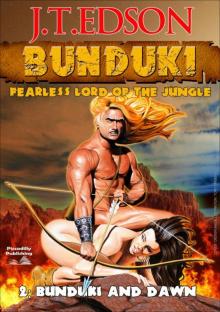 Bunduki and Dawn (A Bunduki Jungle Adventure Book 2)
Bunduki and Dawn (A Bunduki Jungle Adventure Book 2)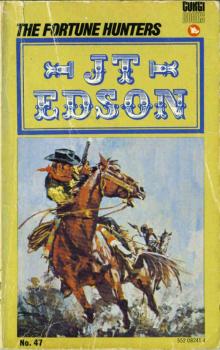 The Fortune Hunters
The Fortune Hunters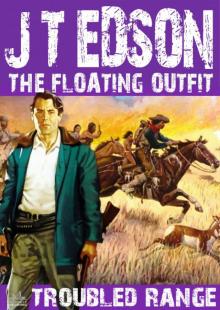 The Floating Outfit 12
The Floating Outfit 12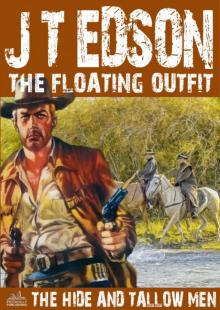 The Hide and Tallow Men (A Floating Outfit Western. Book 7)
The Hide and Tallow Men (A Floating Outfit Western. Book 7)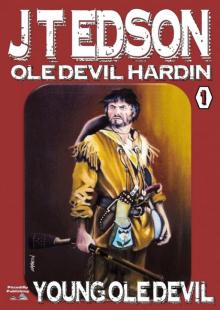 Young Ole Devil
Young Ole Devil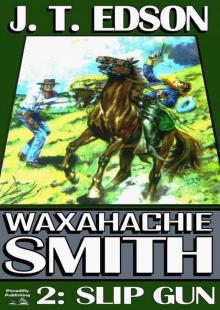 Slip Gun
Slip Gun The Drifter
The Drifter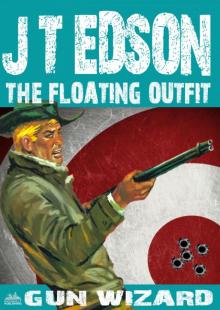 The Floating Outfit 45
The Floating Outfit 45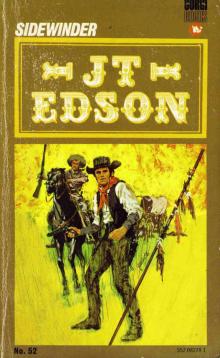 Sidewinder
Sidewinder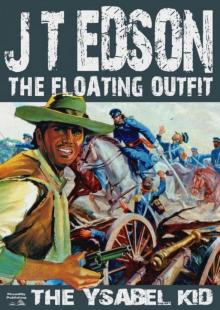 The Ysabel Kid
The Ysabel Kid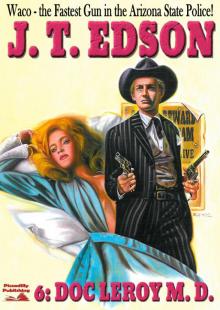 Waco 6
Waco 6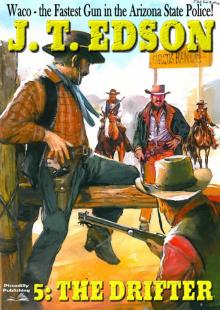 Waco 5
Waco 5 Point of Contact
Point of Contact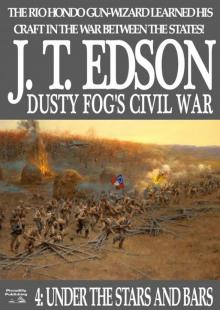 Under the Stars and Bars (A Dusty Fog Civil War Western Book 4)
Under the Stars and Bars (A Dusty Fog Civil War Western Book 4)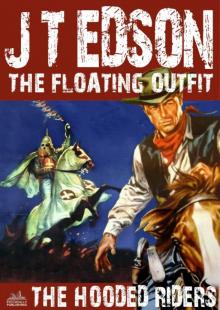 The Floating Outfit 9
The Floating Outfit 9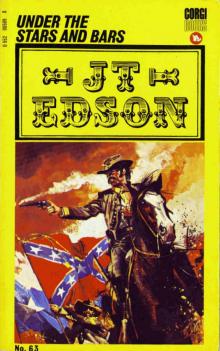 Under the Stars and Bars
Under the Stars and Bars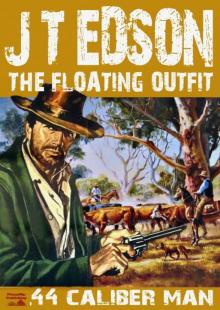 .44 Caliber Man
.44 Caliber Man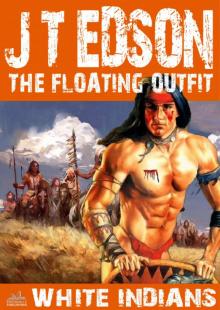 The Floating Outfit 17
The Floating Outfit 17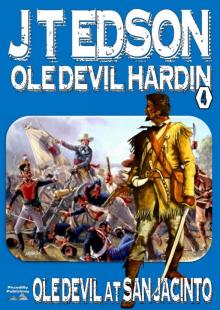 Ole Devil at San Jacinto (Old Devil Hardin Western Book 4)
Ole Devil at San Jacinto (Old Devil Hardin Western Book 4)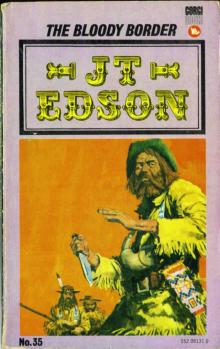 The Bloody Border
The Bloody Border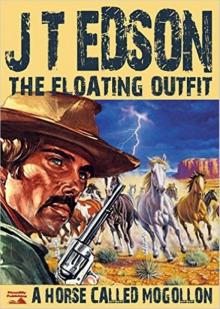 A Horse Called Mogollon (Floating Outfit Book 3)
A Horse Called Mogollon (Floating Outfit Book 3)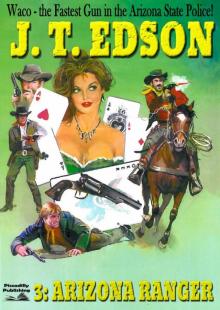 Waco 3
Waco 3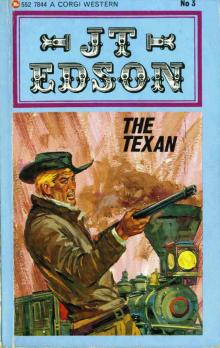 The Texan
The Texan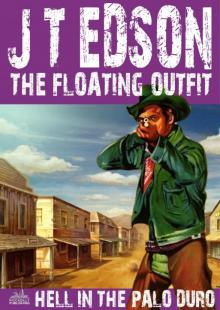 The Floating Outfit 35
The Floating Outfit 35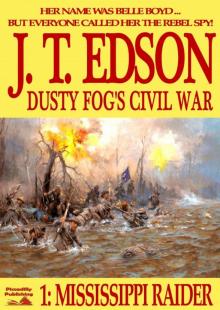 Mississippi Raider
Mississippi Raider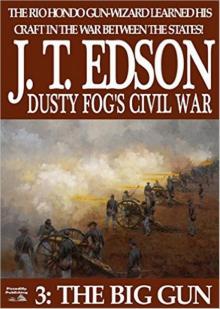 The Big Gun (Dusty Fog's Civil War Book 3)
The Big Gun (Dusty Fog's Civil War Book 3)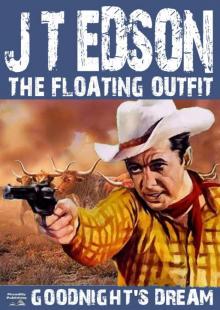 Goodnight's Dream (A Floating Outfit Western Book 4)
Goodnight's Dream (A Floating Outfit Western Book 4) Waco 4
Waco 4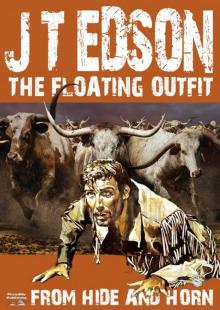 From Hide and Horn (A Floating Outfit Book Number 5)
From Hide and Horn (A Floating Outfit Book Number 5)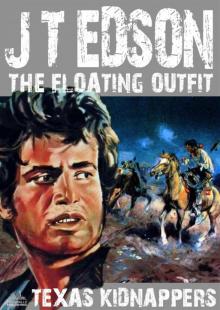 The Floating Outfit 18
The Floating Outfit 18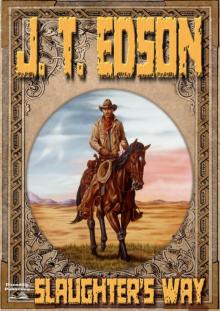 Slaughter's Way (A J.T. Edson Western)
Slaughter's Way (A J.T. Edson Western)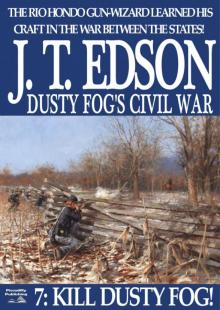 Dusty Fog's Civil War 7
Dusty Fog's Civil War 7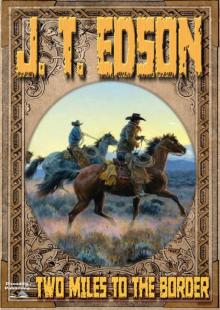 Two Miles to the Border (A J.T. Edson Western)
Two Miles to the Border (A J.T. Edson Western)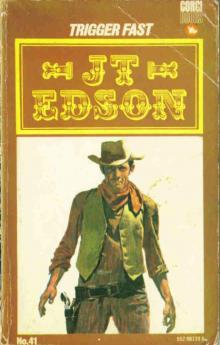 Trigger Fast
Trigger Fast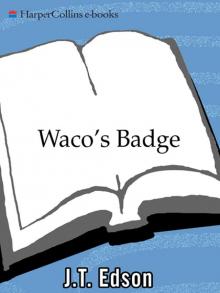 Waco's Badge
Waco's Badge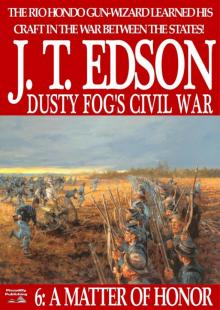 A Matter of Honor (Dusty Fog Civil War Book 6)
A Matter of Honor (Dusty Fog Civil War Book 6)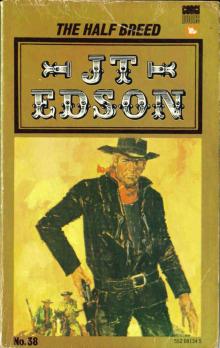 The Half Breed
The Half Breed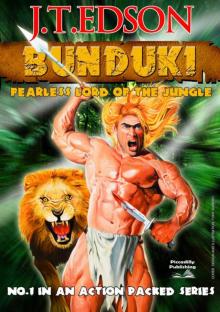 Bunduki (Bunduki Series Book One)
Bunduki (Bunduki Series Book One)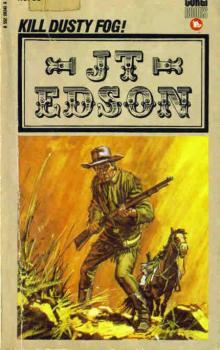 Kill Dusty Fog
Kill Dusty Fog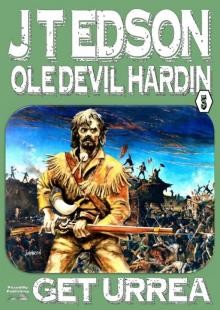 Get Urrea! (An Ole Devil Hardin Western Book 5)
Get Urrea! (An Ole Devil Hardin Western Book 5)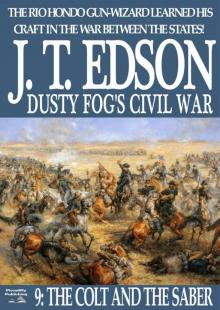 Dusty Fog's Civil War 9
Dusty Fog's Civil War 9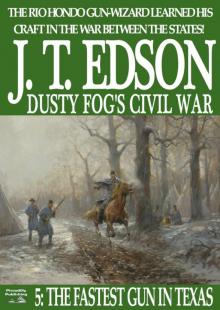 The Fastest Gun in Texas (A Dusty Fog Civil War Book 5)
The Fastest Gun in Texas (A Dusty Fog Civil War Book 5)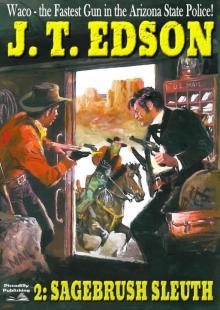 Sagebrush Sleuth (A Waco Western #2)
Sagebrush Sleuth (A Waco Western #2)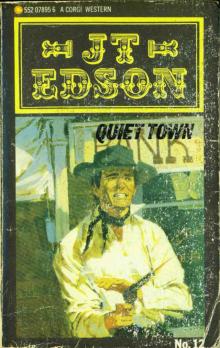 Quiet Town
Quiet Town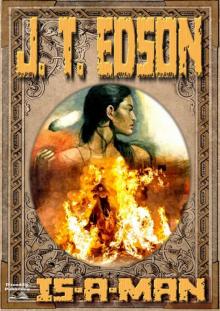 Is-A-Man (A J.T. Edson Standalone Western)
Is-A-Man (A J.T. Edson Standalone Western)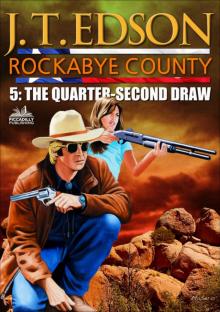 Rockabye County 5
Rockabye County 5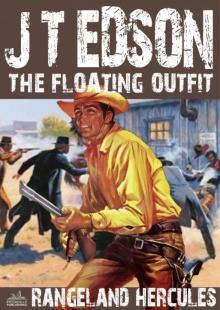 The Floating Outfit 14
The Floating Outfit 14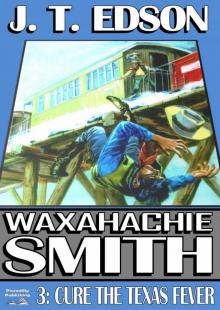 Cure the Texas Fever (A Waxahachie Smith Western--Book 3)
Cure the Texas Fever (A Waxahachie Smith Western--Book 3)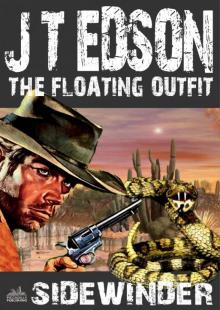 The Floating Outfit 13
The Floating Outfit 13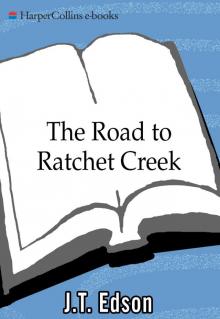 The Road to Ratchet Creek
The Road to Ratchet Creek